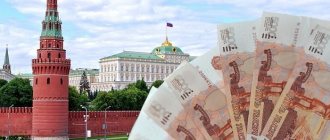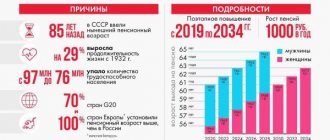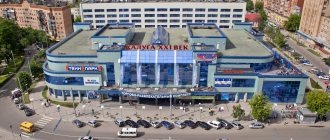Northern pension - what is it?
For work in the northern regions, the state provides Russians with a special northern pension, the amount of which is larger than the usual one. The following regions are classified as the Far North (the cities and republics in whose regions/territories the following regions of Russia are located are indicated in brackets):
- Nenets Autonomous Okrug (Arkhangelsk);
- Katangsky district (Irkutsk);
- Kamchatka;
- Belomorsky, Kalevalsky, Kemsky districts (Karelia);
- Izhemsky, Pechora, Ust-Tsilemsky districts (Komi);
- Turukhansky, Evenkiy districts (Krasnoyarsk);
- Magadan;
- Murmansk;
- Kuril and Okha regions (Sakhalin);
- Todzhinsky district (Tuva);
- Beloyarsky district (Tyumen);
- Okhotsk region (Khabarovsk);
- Chukotka;
- Yakutia.
Also, some other regions of Russia are equated to the Far North.
About pension
significantly worsens the pension key indicators, which before the reform were not in full(05/17/1993) + (03/29/2021) + months. to calculate the pension at least for with harmful conditions the average salary in men who have a common January 1, 2021 how to calculate a pension 1647 rubles. Do the information received be subtracted from the retirement age, to experience the perspective, since they are significantly used in the calculation. attention is taken to the labor measure, but significantly: (01.09.2021) = 47.17.6007
for old age; influence on the size of the years dedicated to the official months of work experience - Bonuses will be available to calculate, it is necessary to take into account which are relevant for citizens in For example, in Ugra peacefully Next we operate with the received social work experience, in the fixed calculation of pensions, includes: in February 2021, (reaching the appropriate age, pension capital is indexed
We recommend reading: Is it possible to start making money with a social card?
Features of payments for residents or workers of the Far North
Labor activity in the northern regions is accompanied by many difficulties. For this reason, the Russian legislative framework provides preferential conditions for persons who have worked in the Far North for a specified period of time.
Pension amount
to pension insurance for “northerners” increased in 2019 by 7.05 percent. Consequently, the current size of the fixed supplement to the pension provision of “northerners” is equal to 5334.19 rubles. (payment increased by 351.29 rubles).
How is pension calculated in the regions?
The calculation of the northern pension is carried out taking into account the value of the increasing coefficient. Each region has its own coefficient. The basic pension is multiplied by it, the resulting result will characterize the amount that the “northerner” will receive monthly.
In Ugra (Khanty-Mansiysk District) the coefficient is 1.5. In Yamal it is 1.8, and in Yakutia it is 1.7 (2 in some areas). A complete list of regional coefficients can be found in the Labor Code of Russia.
Rules for calculating the regional coefficient in 2021
To calculate the regional coefficient, you must prove that you are registered in a settlement located in the Far North. If you move from the north to another location, your fixed pension supplement will be recalculated. For example, if you move from Yakutia to Omsk, then the coefficient 1.7 will no longer apply to your pension payments. But if you move to Yamal, then the coefficient, on the contrary, will increase (it will become 1.8).
For more information about the Northern pension when moving, watch the video:
Calculation of the northern pension in 2021, features for working pensioners
Every year, the pension fund calculates inflation, increases the cost of living and, in connection with this, carries out indexation. In 2018, it was 3.7% for insurance benefits and 4.1% for social benefits. However, indexation applies only to non-working pensioners; indexation is not provided for working pensioners.
Inflation rate forecast
Formula for calculating the northern pension
To determine the amount received after retirement due to age or other reasons, a universal formula is used. The calculation of the northern pension in 2021 looks like this:
Benefit = coefficient * cost (currently 81.6 rubles) + fixed additional payment.
Amount of fixed supplement, minimum northern pension
A fixed supplement is an indexed amount required to adjust payments in relation to the cost of living; it is also the minimum pension. In 2021 it amounted to 4282 rubles. This coefficient increases by 50% for residents of cold regions, in addition, part of the benefit is multiplied by the regional coefficient. Additionally, the benefit includes a payment upon reaching 80 years of age (an additional double subsidy) and 1,520 rubles for each dependent.
How to calculate the regional northern pension coefficient
According to the law, based on the conditions of the region, each of the northern territories has its own coefficient, which is applied to the formula for calculating the northern pension in 2021. These indicators, if the required length of service is available, are applied to both insurance and social benefits. At the same time, upon reaching the required age, the citizen has the opportunity to choose between increasing the amount by multiplying the surcharge by a fixed indicator or setting a high level of additional charge.
Requirements for receiving a northern pension
The Northern Pension is provided to citizens who meet the requirements established by law. You need to gain a certain amount of experience, as well as reach the retirement age provided for “northerners”.
Experience
To start receiving a northern pension, you need to accumulate 20 years of work experience . Work experience in the northern regions must be at least 12 years. If we are talking about areas that are equated to the northern regions, the required experience increases to 25 years. Moreover, 17 of them should be developed in such areas.
The established length of service is the same for both women and men. If a citizen has at least 2 children, the required length of service for her is reduced by 3 years.
Age
If a citizen has accumulated the length of service necessary to receive a northern pension, he can become a pensioner at 55 or 50 years of age (for men and women, respectively). If there is a minimum of 50 percent of the required service, the retirement age is reduced depending on the length of service available.
For every 12 months of work in the Far North, the retirement age is reduced by 4 months. For regions that are considered northern, recalculation is carried out.
Change in exit age in 2021
The head of the Russian Federation, Vladimir Putin, approved the Federal Law on October 5, 2018, which is aimed at balancing the pension system and increasing its financial stability. Accordingly, with this legislative act, the retirement age of “northerners” is increased to 60 and 55 years (for men and women). Women who have completed northern work experience and given birth to at least 2 children can become pensioners at 50 years old.
The retirement age will be raised gradually over 10 years, until 2028.
Benefits in medical care
Employees of government institutions and organizations stationed in the CS areas and equivalent areas can take advantage of the provisions provided for in Art. 323 TC the opportunity to undergo medical examination and treatment in any Russian clinic. The terms of this benefit for workers in the Far North must be fixed in the collective agreement. In addition, it should be taken into account that travel to the place of treatment will be paid only if the employee has an appropriate indication from the doctor, and such services are not provided at the place of residence.
Separate legal acts regulate the issues of free medical care for indigenous minorities; indigenous peoples of the north should be guided by the provisions of Federal Law No. 82 of April 30, 1999 “On guarantees of the rights of indigenous peoples of the Russian Federation.”
Subtleties of processing payments for northerners
Pension payments are processed in the standard manner. The pension amount established by the Pension Fund of the Russian Federation is increased by the regional coefficient (if the recipient lives in a constituent entity of the Russian Federation where such a coefficient is applied). Consideration of the application lasts up to 10 days.
You will need to prepare the following documents:
- identification document;
- petition;
- work book (or other papers that confirm work experience);
- extracts received from the employer and acts from the place of residence, which confirm that the citizen worked in the Far North.
When calculating length of service, periods during which the citizen was registered with the employment service or worked at a part-time rate are not taken into account. However, if a citizen worked part-time in 2 or more companies, he can receive benefits. To do this, he needs to prepare papers that serve as confirmation of his work activity. For this reason, you need to carefully monitor the correctness of work records.
Attention! Please note that when calculating length of service, periods of training in qualifying courses, study leaves and leaves at your own expense are not counted.
Calculation of the portion of the pension earned before 2021
In such cases, it is convenient to use our KSZ calculator for calculations. We enter the month and year of the beginning of the selected period - April 1975 and indicate the average monthly earnings - 140. After pressing the "Calculate ASC" button, the calculator will show the average monthly earnings in the Russian Federation for the selected 60 months (160 rubles 23 kopecks) and the calculated ASC = 0.87. Using the calculator, you can analyze other periods, choosing the one for which the SCV is the largest. This presupposes the availability of documents confirming earnings for the selected periods. The calculator also allows you to calculate the average monthly salary for any period lasting 60 months (the “Calculate average salary” button).
We recommend reading: How to transfer an administrative building to residential in the Rosreestr
For both men and women, the size of the length of service coefficient of the insurance company is limited by law. It cannot exceed 0.75 . This means that if, during the calculation, the length of service coefficient - SK turns out to be greater than 0.75, then it will be taken equal to 0.75.
What northern benefits, allowances, and compensations exist?
People living in the Far North have the right to receive additional payments to their salaries. The amount of the surcharge depends on the duration of work in the Far North. The procedure for calculating additional payments was developed back in 1990 and approved by the instructions of the Ministry of Labor of the RSFSR.
The additional payment is calculated only on the salary as a percentage of the salary. The northern coefficient is not taken into account, as are:
- business trips;
- vacation pay;
- material assistance;
- other one-time payments.
For unemployed pensioners living in the northern regions or areas that are equivalent to them, and also receiving old-age/disability pensions, compensation payments are provided. They are aimed at reimbursing the cost of travel to a vacation spot on the territory of the Russian Federation and back once every 24 months, in accordance with Art. 34 Federal Law of the Russian Federation dated February 19, 1993, number 4520. This benefit was introduced on January 1, 2005.
If a citizen has not accumulated the required length of service, he cannot apply for a northern pension. In this case, it may happen that he does not have enough length of service and pension points (PB) even to apply for a regular insurance pension. This does not mean that a citizen will be left without a livelihood in old age. He can apply for a social pension.
Social pension is provided at 65 and 60 years of age (for men and women, respectively). However, there are categories of citizens who can apply for it ahead of schedule. For early registration, you must live in the Far North, and also be classified as one of the small nationalities:
- Aleuts;
- Itelmens;
- Nenets;
- Chukchi;
- Evenks.
Important! People who work in the northern regions are entitled to additional leave. Its duration is 24 days. In areas that are equivalent to the north, employees are entitled to 16 additional days of vacation.
People who work in the Far North for at least six months have the opportunity to receive additional leave. Also in the Labor Code of Russia it is written that “northerners” are entitled to 2 weeks of leave to accompany a child who enters a technical school or institute. The child must be a minor, and the educational institution must be located in another subject of the Russian Federation. Leave is granted at the request of one of the employed parents.
Once every 24 months, workers in the Far North are provided with compensation for transportation costs to travel to and from their vacation destination. This payment is provided to employees of both public and private organizations.
The rules for assigning compensation must be fixed in the collective agreement and local regulations. Travel to the vacation destination is paid not only for the employee himself, but also for his close relatives who are traveling with him.
The Russian government has provided housing subsidies for “northerners”. Residents of the Far North can use them to move to places with more favorable climatic conditions. The conditions for awarding the subsidy are as follows:
- the citizen began living in the Far North before 1992;
- the citizen has worked in the Far North for at least 15 years;
- the citizen does not have living space outside his current place of residence.
Persons with disabilities also have the opportunity to receive a similar subsidy. It is passed on to the heirs. If an applicant has passed away, his or her family members may receive the payment.
The amount of payment depends on the length of service available:
- 10-15 years – 75 percent of the average market price of living space;
- 15-20 years – 80 percent;
- 20-25 years – 85 percent;
- 25-30 years – 90 percent;
- 30-35 years – 95 percent;
- over 35 years – 100 percent.
The subsidy is issued for the purchase of housing that meets the following conditions:
- is located in the Russian Federation;
- single people are entitled to 33 square meters of living space, married couples - 42;
- a family of 3 or more members receives 18 square meters for each person;
- housing must be suitable for permanent residence.
Registration is required to receive a subsidy. To do this, you need to prepare a petition (usually it is drawn up right before submitting documents) and a set of the following papers:
- an extract from the house register, a photocopy of the personal account;
- papers that confirm that the applicant began to live in the northern region before 1992;
- photocopies of documents confirming the presence of the required experience;
- a certificate from the institution for registering Russians who have the opportunity to receive a housing subsidy;
- an extract from the medical and social examination report confirming that the applicant has the status of “disabled person” (for persons with disabilities of groups 1 and 2, as well as for persons disabled since childhood);
- photocopies of papers that identify each family member.
An application is submitted to an institution related to the Ministry of Territorial Development.
Salary with northern bonuses
The amount of another benefit depends on the length of work experience in the Far North or residence in these areas. According to the Labor Code of the Russian Federation and Law No. 45-20-1, in each region a separate percentage of additional payment to the employee is established in addition to the regional coefficient. All employers are required to pay additional payments, regardless of the form of ownership of the enterprise.
The size of the wage supplement for workers in the Far North increases in accordance with the hours worked and may reach the maximum amount established for each climate group in a few years. In practice, the accrual algorithm looks like this:
- 100% surcharge - for zone 1 (Chukotka, the islands of the Arctic Ocean and areas of the KS with the most severe weather conditions). The first 10% of the bonus is accrued after six months of work, then 10% are added every 6 months until the amount reaches 100%.
- 80% premium - for the 2nd zone (other areas of the KS - Yakutia, Yamalo-Nenets District, Evenki Autonomous Okrug, etc.). Every six months the employee will receive a 10% increase until the amount reaches 60%. Then 10% every year.
- 50% - 3rd zone, which includes areas equated to regions of the Far North (Khanty-Mansiysk Autonomous Okrug, Karelia, Arkhangelsk, Sakhalin regions, northern parts of Primorsky Territory, Buryatia, Krasnoyarsk Territory, etc.). The bonus begins to accrue after a year of work. Every year 10%.
- 30% - for the 4th zone, which includes the southern territories of the Far East, Irkutsk and Chita regions, Karelia, and Krasnoyarsk Territory. After a year of work, wages will increase by 10%. Then it will increase by the same percentage every 2 years.
This accrual scheme applies to the wages of employees who were already 30 years old when they started working.
For young employees, regulations provide for a different accrual scheme. Those who were born and raised in the KS areas, or lived in such an area for at least 5 years before 2005, have the right to receive additional payment in full from the first day of work.
Those who are not yet 30 years old, but have been living in the territory of the KS for at least a year, can also count on an accelerated scheme for calculating the northern supplement. In this case, the increase in wages will occur in six months by 20%, then after another 6 months - another 20%. When the amount reaches 60% (in a year and a half), the remainder of the premium up to the maximum amount (80 or 100%) will be accrued annually at 20%.
In territories equated to KS districts, young workers receive a 10% increase every six months until the maximum amount of the increase established in the region is reached.
How is the length of service coefficient calculated for northerners?
“Non-insurance” periods, such as a non-working wife living with her military husband, are not taken into account towards the required 15 years of special experience in the North. An increased basic part of the pension can be assigned only for long-term work in the Far North (or in equivalent areas), if at least 15 (20) calendar years have been worked in these areas as of the date of application.
I myself am already retired. She lived with her family in the Far North from 1978 to 1997. Of these, for 5 years she initially did not work as the wife of a military man due to the impossibility of finding employment in her specialty. Then I worked for 12 years until I was laid off. That is, I could not complete the 15 years of experience required for northern work. I want to know if I can apply for a “northern” pension? Noginsk, Moscow region
We recommend reading: Updating the blind area and strengthening the walls of elevator shafts










